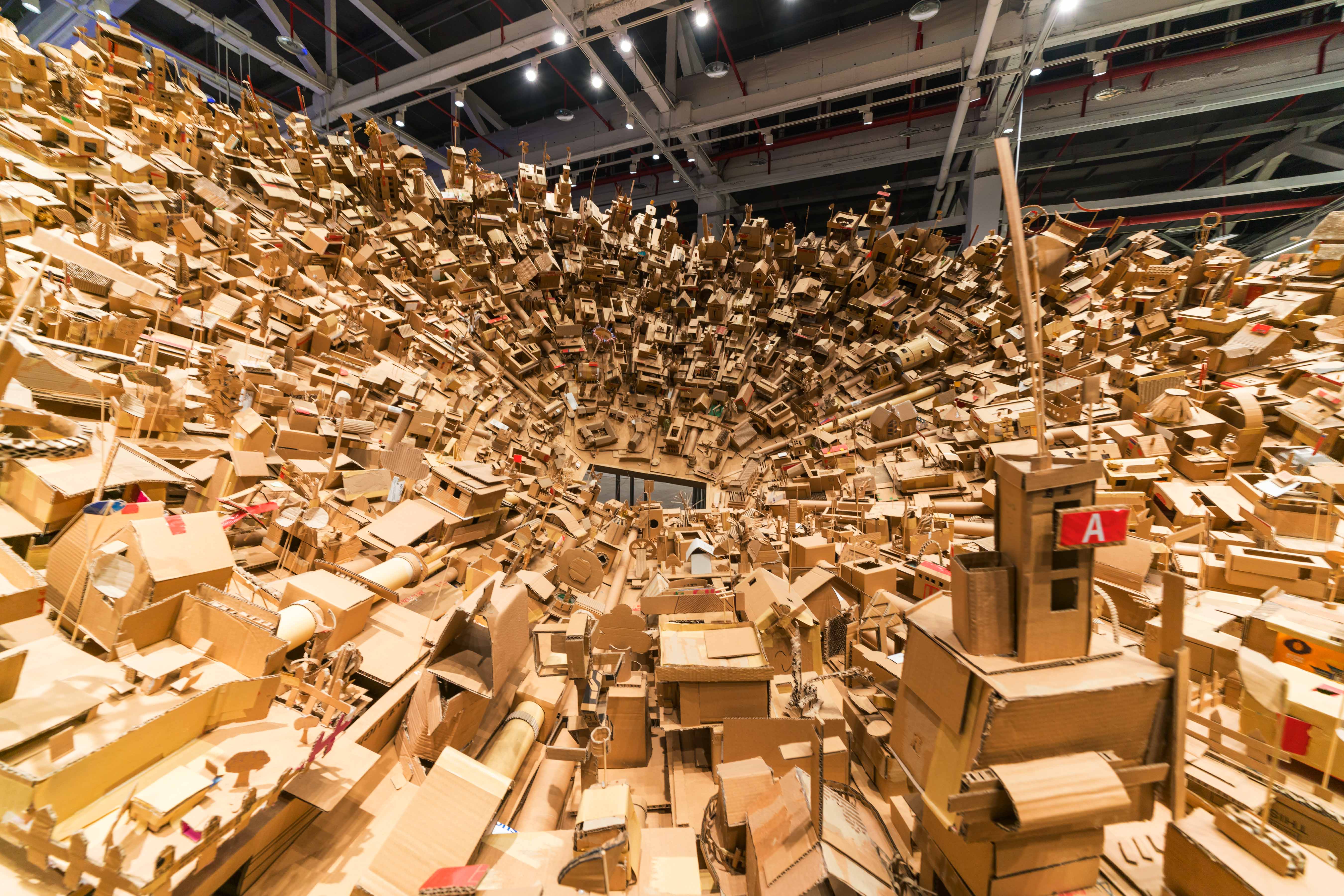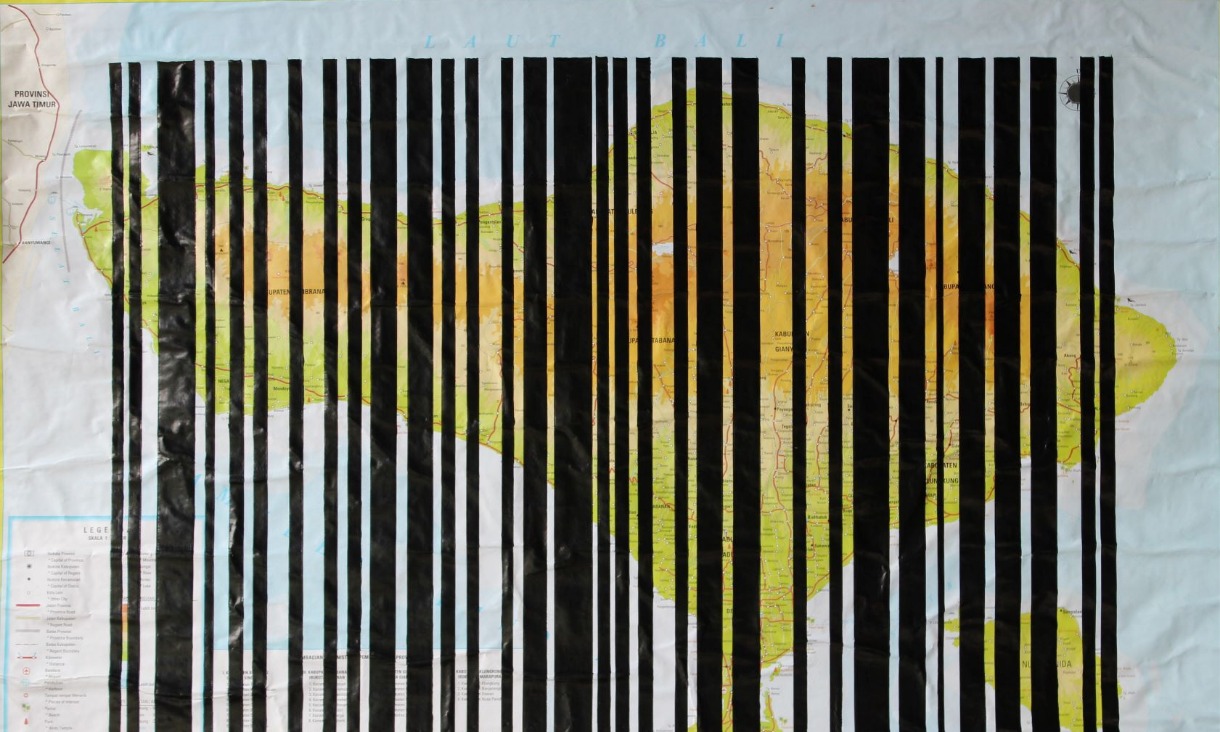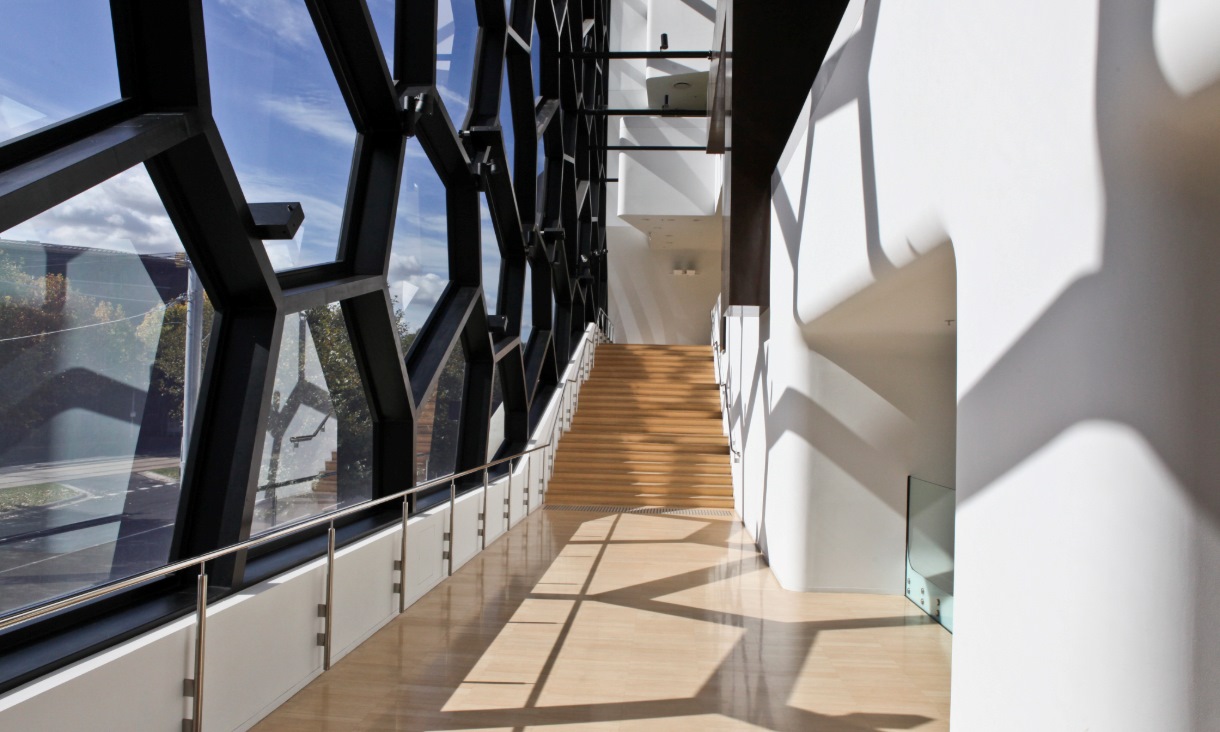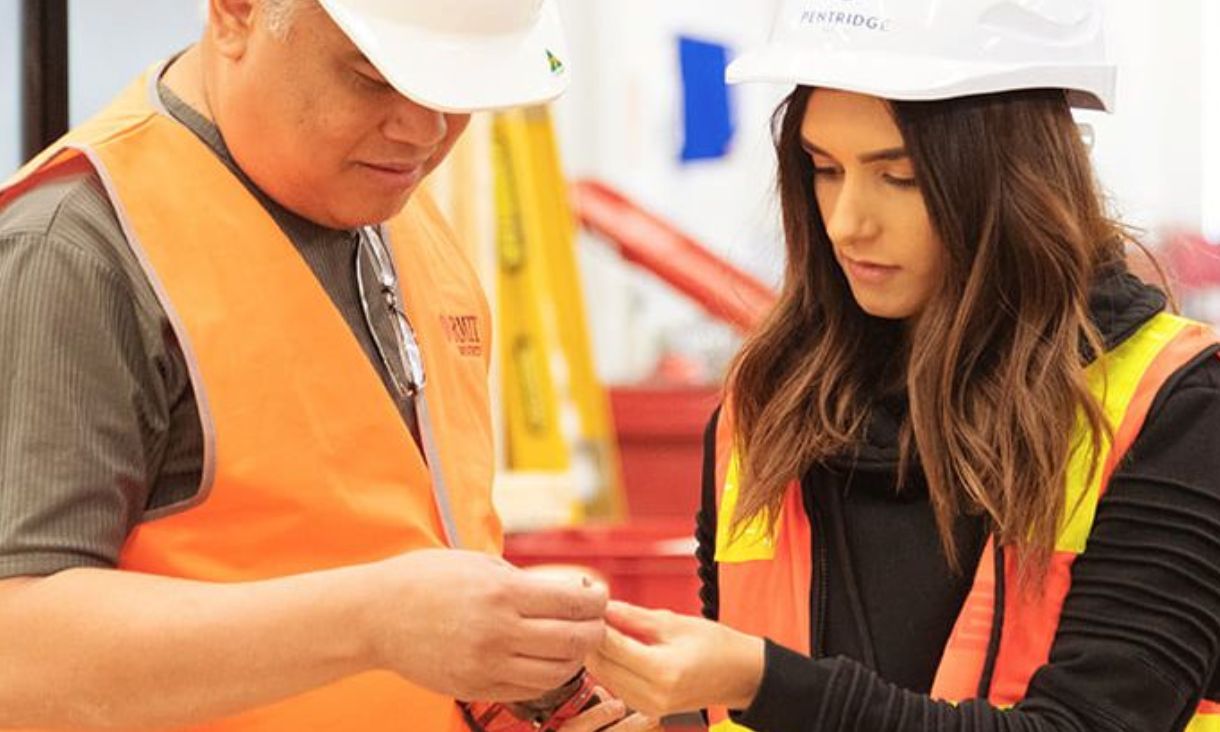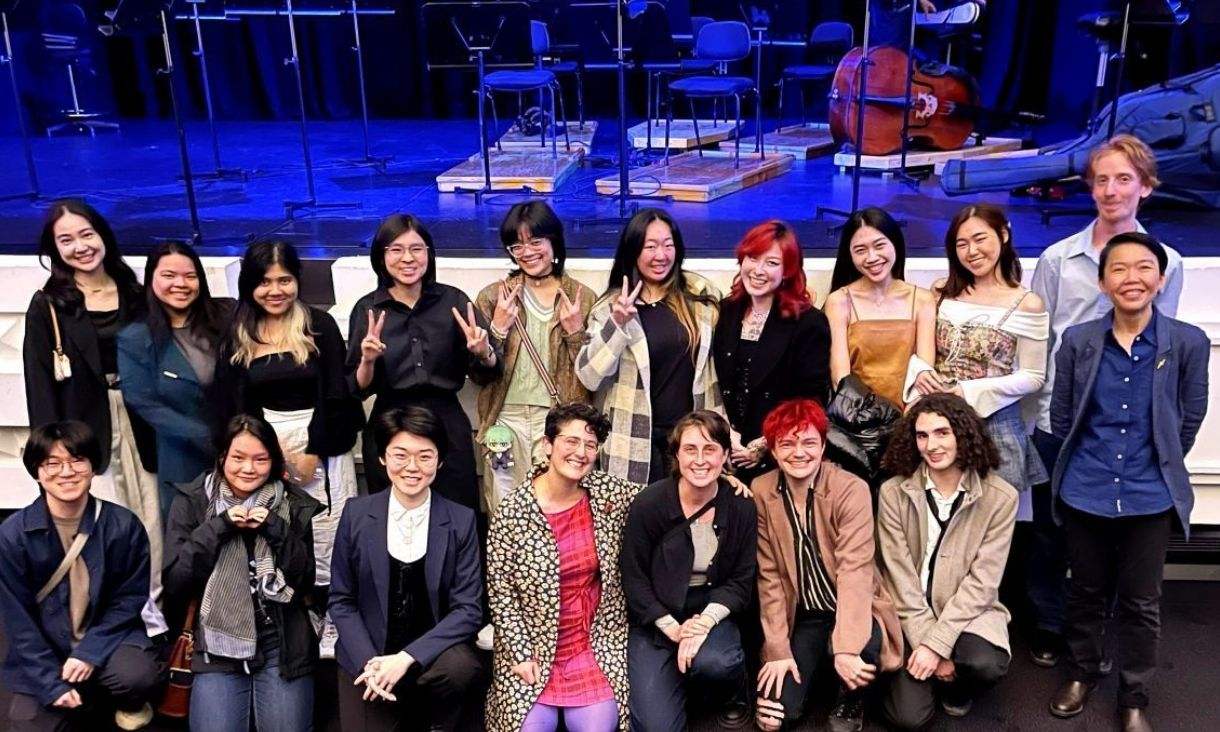Land for Sale, a living grass installation by Arahmaiani, one of Indonesia’s most respected and iconic contemporary artists, provides a powerful and provocative commentary on land ownership.
Using simple materials such as trolleys attached to sculptures of buildings, Isabel and Alfredo Aquizilan’s work reflects on their personal experience of migration from the Philippines, as well as the hardship of such journeys at a time when people are moving around the world at speeds previously unseen in human history.
As part of the exhibition, one entire room in the gallery will be turned into a working kitchen. Bruised Food: a Living Laboratory, a project curated by Marnie Badham and Francis Maravillas, will critically reflect on food and social practice, and present works and events by Elia Nurvista, Arahmaiani, Keg D’Souza, Rhett D’Costa and Stephen Loo.
These weekly food and art events will include a cricket banquet, a meal of salt tolerant plants, and a celebration of stories of migration and Asia including spices and personal histories.
“The action of creative innovation can have a rich legacy and empower the community. A bruise repairs - this exhibition seeks to deliver hope in the face of our complex environmental problems,” Rayment said.
Bruised: Art Action and Ecology in Asia is part of the of ART+CLIMATE=CHANGE 2019 23 April–19 May, a socially-engaged festival of exhibitions, theatre works, keynote lectures, events and artist talks considering climate change impacts and the challenges and opportunities arising from climate change.
Image captions:
Image 1: Isabel and Alfredo Aquilizan, Arrivals and Departures, 2019. cardboard, luggage portable trolley. Photography by Ejian Studio @ Fang Zheng, Ji He, Wang Wenze, Du Hongbin
Image 2: Made Bayak, Trapped behind bars, 2013, Acrylic paint on map, 110 x 80cm. Courtesy of Made Bayak.
What: Bruised: Art Action and Ecology in Asia
When: 12 April – 1 June
Opening night: Thursday 11 April 6-8 pm
Where: RMIT Gallery, 344 Swanston Street, Melbourne
Website
For interviews and general media enquiries:
Evelyn Tsitas evelyn.tsitas@rmit.edu.au (03) 99251716 or 0418 139 015.
RMIT Communications: 0439 704 077
